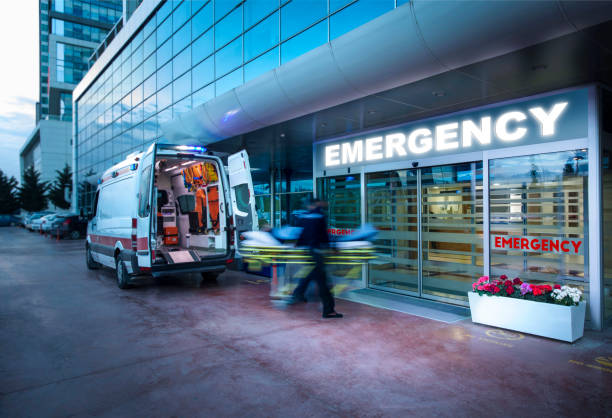What Features Should You Look For In Medical Care Alerts?
Medical care alert systems are essential devices that provide quick access to help during emergencies. They are helpful for older adults, people with health issues, or anyone living alone. Having the proper medical alert can make all the difference when seconds count. So, what features should you look for in a medical alert system?
Choosing the right features can be confusing with so many options on the market. Some features focus on mobility, while others are perfect for at-home use. Knowing the key features to prioritize, you can choose a device that suits your needs best. This article will explore five essential features to consider in a medical alert system.
1. 24/7 Monitoring and Support For medical care
One essential aspect of any medical care alert system is 24/7 monitoring and support. This feature avails help at any time and under any circumstances. In emergencies like chest pain, dizziness, or any other health complications, being able to call a professional or a doctor to advise on the best procedures to follow is essential.
Many systems have a one-on-one link with a well-trained response team when you press the help button. Some systems even alert the caregivers or the family members for added care and check-ups.
When searching for a system with 24/7 monitoring, there should be a certified and reliable monitoring center. Proper monitoring centers have staff with special training in handling different emergencies. Thus, those in the waiting area can be comforted while waiting for help to arrive.
Some monitoring centers also provide the services of interpreters for people who speak languages other than English. Further, the best systems are fast-responding systems, which decrease the time interval from when you press an alert button to when you receive help. The significant advantage of professional 24/7 monitoring is peace of mind.
2.Medical care Fall Detection
Fall detection is one of the most sought-after features in medical alert systems. It’s essential for anyone with balance problems. This feature can easily detect a fall; without pressing a button, it will immediately alert the central monitoring center. For elderly persons or those with mobility issues, this can be a lifesaver, especially in conditions that hinder their ability to operate complex machines.
Falls result in severe injuries, and having a device that dials help immediately means that help will reach the patient as soon as possible.
Fall detection incorporates advanced sensors that analyze motion changes and force. When these sensors identify the fall, they notify the monitoring center in the system or selected individuals. There are, however, some systems where you can cancel the alert if a situation is not dangerous.
Aside from that, finding a fall detector that operates within an interior setting and many other exterior settings is an added assurance. This functionality can be valuable to those in a single occupancy house or someone who can’t call for help after a fall. With the fall detection feature, the system will surely get you the help you need.
3. Water Resistance
An ideal medical alert device should be water-resistant. Many mishaps are likely to occur in the bath area because the area is usually wet. Bathing means you are wet, and having a water-resistant device on your body ensures you are always protected. Look for devices specifically designed to withstand exposure to water.
Water-resistant devices are usually tested for splash, rain, and water immersion. It is helpful if you find yourself in the rain or during other daily activities where you might get wet. Making your device waterproof increases its durability and helps you get help even when raining.
4. Location Tracking (GPS)
Location tracking is essential for people who may need help outside their homes. A device with GPS can quickly tell the location, making the work of the responders easier in case of an emergency. This feature is helpful for someone with memory problems or who walks alone. Regarding response time, GPS tracking guarantees one gets help when time is critical.
GPS-enabled medical alert systems send your location to the monitoring center or desired individuals. There are also products for a family to track the device through an application. Distance is not a problem; you don’t have to feel lost using the location tracking feature.
5. Long Battery Life
A reliable medical alert system should have a long battery life to ensure it’s always ready to use. Some devices have batteries that last days, while others require frequent charging. Choose a device that matches your lifestyle and ensures you won’t be left without power in an emergency.
For at-home devices, long battery life reduces the need for constant charging and ensures your system is 24/7 active. Portable devices should alert you when the battery is low so you can recharge it on time. Some systems even have backup batteries, which keep the device working during power outages.
With a long-lasting battery, you can stay protected and avoid worrying about the device failing when you need it most.
Conclusion
Choosing the right features for a medical alert system is crucial for safety. These systems should have 24/7 monitoring and fall detection features, be waterproof, be equipped with GPS, and have a long-lasting battery. Every element is essential, so you’ll be safe at home or anywhere else. Prioritizing these features enables you to find a medical alert system that meets your requirements and daily life. Purchasing the right system protects you and assures your family members that help is always available.










